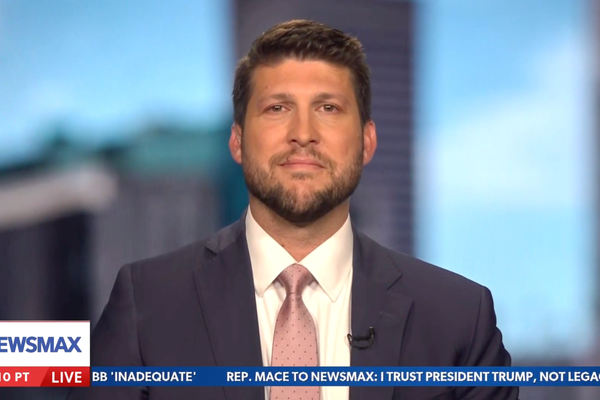Worried about running out of money in retirement? Forget market risk. Longevity risk — or living to a ripe old age — is the hidden threat.
Two statistics sum up the possible need to make your nest egg last much longer than you envisioned.
First, the number of Americans 100 or older is projected to more than quadruple over the next 30 years, according to the U.S. Census Bureau. (And that's after the number of centenarians nearly tripled in the past three decades.)
Second, the average retirement age among retirees is 61, according to Gallup.
Running Out Of Money: Going For 100
The math shows there could be a big gap between when most people stop working and when they'll no longer have to pay bills. In fact, 28% of Americans "think it's likely they'll live to 100," a Northwestern Mutual study found. An even greater number (nearly 70%) said they would like to live to 100, according to an Edward Jones and Age Wave study.
Life expectancy in the U.S. is 76.4 years overall, according to the federal government. Females' life span of 79.3 years, however, is about six years longer than males' life expectancy of 73.5 years.
Life Goes On
The bottom-line: If you're in decent health there's a chance retirement may be longer than you think, and your nest egg might have to last until age 100. Even the Social Security Administration says one out of seven of today's 65-year-olds "will live until at least age 95." For the typical retiree, that means you'll need your investment accounts and other forms of income, such as Social Security, pension and annuity checks, to last 35 to 40 years.
That's why building a longevity plan that keeps you financially fit until age 100 isn't as far-fetched as it sounds. Especially with headwinds such as inflation, market volatility, health issues and unexpected curveballs.
"People are living longer," said Cassandra Rupp, a senior wealth advisor at Vanguard. "I'd rather my clients be on the conservative side and plan to ... make sure their money outlives them."
So, what can you do to boost the odds that you won't run out of money if you become a centenarian? There are plenty of levers you can pull at different life stages to stretch your dollars, aside from just saving more and investing smartly.
Work Longer To Avoid Running Out Of Money
There are financial benefits to delaying retirement or working reduced hours in retirement as a consultant, freelancer or part-time worker, says Lena Haas, head of wealth management advice and solutions at Edward Jones.
What earning income for longer allows you to do is pull other key levers that can extend the life of your nest egg. "You can defer when you start dipping into Social Security and maximize your payout," said Haas. "You can still benefit from your employer contributing to your retirement plan. You can delay starting to draw down your portfolio."
Secure Your Financial Anchors
Protecting yourself against costly life emergencies and not letting them turn into wealth-killers is key. To do that, you must consistently execute all the basics of personal finance.
Make sure you have an emergency fund. Control debt. Stick to your budget. Save up to 15% of your pay. Contribute to your 401(k). Take Social Security later rather than sooner to get a bigger check for life.
All those little things add up.
"Those key anchors (help) to keep your finances stable," said Haas. "Something that could be a minor curveball to a person who is prepared could quickly become a larger cannonball (or much larger crisis) if you're not prepared."
For example, you don't want to go into debt to fund an emergency roof repair. "It can spiral out of control and really become something that destabilizes your plan," said Haas.
Run The Numbers And Don't Run Out Of Money
Tell your financial advisor to run all the imaginable financial scenarios possible, both good and bad, says Vanguard's Rupp. She runs analyses for clients that look at 10,000 different market scenarios. This stress test will let you know if your portfolio is built to last until 100.
"We're looking at your rate of (portfolio) depletion," said Rupp. Typically, portfolio withdrawals in retirement range from 3% to 5%. The goal? See how many years your portfolio can stay positive given your withdrawal rate. Optimally, you'll have money left over at 100 when you run the numbers each year.
Sometimes, being too conservative with your portfolio as you near or enter retirement can hurt in the long run. "Looking at a typical retirement scenario where you're averaging out your expenses over your lifetime, you actually need to have more growth potential to make sure you're keeping pace with inflation, and you'll be able to continue at the withdrawal rate that you want," said Rupp.
Let Markets Help Grow Your Money
Saving is not investing. If you don't invest in stocks, bonds and other assets that historically generate higher returns than cash, your money won't work hard enough for you.
"Many people don't even invest or participate in the market," said Haas. "They keep all their money in cash. (And that typically delivers) suboptimal returns given peoples' goals and time horizon."
Also make sure you set up and stick to a portfolio rebalancing plan that ensures that you are selling high and buying low and not trading on emotion. Rebalancing keeps your ideal asset mix of stocks and bonds intact.
Say your plan calls for a 60% stock and 40% bond mix. If a big stock rally boosts your stock weight to 70%, you'd sell stocks when they're high and redeploy the money into bonds to get your stock allocation back to 60%.
"People act on their emotions," said Haas. "The emotion is, 'oh my gosh, the market is down I need to sell,' or 'oh, the market is doing really well I want to get in.' That results in the sort of opposite behavior you would like."
Utilize Your Entire Retirement Toolbox
One key to making nest eggs last longer is to build a diversified, tax-efficient retirement portfolio that results in a sizable account balance that can grow over time and outpace inflation.
But another tool in the toolbox is to find ways to build a guaranteed income stream for life that can cover about two-thirds of your annual expenses, says Michelle Patello, wealth management advisor at TIAA. Once you have the bulk of your expenses taken care of, you can tap your retirement account to fund other costs.
"We're essentially trying to reconstruct your paycheck," said Patello. Typically, that's done through income earned from Social Security, pensions, annuities and turning other investments into a steady income stream.
The power of guaranteed income is it allows you to withdraw less from your retirement portfolio, giving your money a longer growth runway.
"What you're doing is reducing your burn rate, or what you would withdraw from your portfolio," Patello said. "And that means fewer years of stress on your portfolio."
Design A Tax-Efficient Withdrawal Plan
Your money won't last as long as you want if you pay more in taxes than you need to. When it's time to withdraw money, you've got to know what accounts to pull from to keep your tax bill down, says Patello.
Most peoples' brokerage accounts are taxed at the capital gains rate of 15%. Traditional 401(k) and IRA accounts are taxed at ordinary income rates. And you can take withdrawals from Roth IRAs and Roth 401(k)s tax-free. "I refer to these three categories as 'now taxable,' 'later taxable' and 'never taxable,'" said Patello. "It's important to think about how assets are taxed."
For example, it might make sense to withdraw from an account with a low tax hit to enable you to delay Social Security to earn a bigger benefit later. It might also make sense to convert traditional IRAs to tax-free Roth IRAs so future withdrawals are not subject to taxes.
Get Professional Help To Stop Running Out Of Money
You'll probably need help to pull all the levers, ranging from portfolio asset allocation to Social Security and pension timing decisions, and minimizing your tax bill to monitoring and fine-tuning your financial plan over time.







